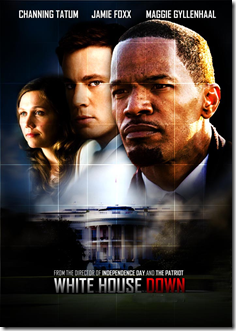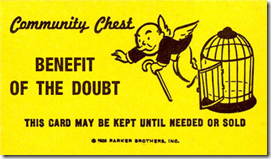Matthew Dicks's Blog, page 408
April 2, 2014
Resolution update: March
1. Don’t die.
Still kicking.
2. Lose ten pounds.
Seven pounds down, thanks mostly to the most vicious stomach bug of all time.
3. Do at least 100 push-ups and 100 sit-ups five days a week.
I missed two weeks thanks to the stomach bug, but I’m back on the horse again.
4. Launch at least one new podcast.
Author Out Loud, my first podcast, is still yet to launch (and therefore still not my first). Once we have that podcast running smoothly, we can think about adding a second podcast.
If you’re keeping score, this means that I’m actually failing at last year’s goal of launching my first podcast and this year’s goal of launching my second podcast.
5. Complete my sixth novel before the Ides of March.
Revisions on the next novel have stalled progress on the new one. I will set a new goal when revisions on next book are complete.
6. Complete my seventh novel.
I sent the first half of this manuscript onto my agent to see if I should continue work on it. I await word.
7. Sell one children’s book to a publisher.
Still working on revisions for The Little Bad Wolf and two other manuscripts.
8. Complete a book proposal for my memoir.
I made a decision to reduce the scope of my memoir and focus primarily on the two years that encompassed my arrest and trial for a crime I did not commit. These two years also include an armed robbery, the onset of my post traumatic stress disorder, my period of homelessness and the time I spent living with a family of Jehovah’s Witnesses.
There’s plenty of material for for a memoir in those two years, I think.
I also think a reduced scope will make for a better memoir and open the door to future memoirs from other periods of my life.
Work has begun on this project.
On the advice of a Moth producer, I have also transcribed five of my Moth stories and sent them to my agent with the thought that we may consider publishing them as well. I await word on that as well.
9. Host at least one Shakespeare Circle.
Nothing scheduled yet.
10. Write a screenplay.
In an interesting turn of events, a filmmaker has contacted me about writing a script for her. We have a conversation scheduled for later this week. This experimental project may turn out to be something much more interesting.
11. Write at least three short stories.
No progress.
12. Write a collection of poetry using existing and newly written poems.
April is National Poetry Month, and I have begun to assemble, revise and even write one new poem for my book. I don’t know if anyone else will like my poetry, but I kind of love it. I know that’s a rather self-congratulatory thing to say, but it’s true. I enjoyed re-reading some of my older poems. I hope to have the book ready in a month or two.
13. Become certified to teach high school English by completing one required class.
One class and $50 away from completion. Hopefully a class that I can find and complete over the summer.
14. Publish at least one Op-Ed in a physical newspaper.
I’ve been hired as a the columnist for Seasons magazine, a Connecticut-based magazine with a readership of more than 60,000 people. I’ll be writing four humor columns each year at the onset of each new season.
I’m not sure if this counts in terms of completing this goal. Seasons isn’t a newspaper, but it’s a physical publication.
I’m still working on getting an Op-Ed in a newspaper, so I probably won’t count this new writing gig toward the goal unless I need to.
15. Attend at least 10 Moth events with the intention of telling a story.
I attended a Moth GrandSLAM in March, bringing my total events to five. I finished in second place, which is apparently the only place available to me in GrandSLAM competitions.
16. Win a Moth GrandSLAM.
As stated above, I finished in second place, which marks my fifth second place finish in a Moth GrandSLAM (including three by a tenth of a point).
17. Give yoga an honest try.
No progress.
18. De-clutter the basement.
I’ve begun the process of throwing things out again. It’s a smidgen of progress, but slow and steady wins the race.
19. De-clutter the shed
No progress.
20. Conduct the ninth No-Longer-Annual A-Mattzing Race in 2013.
No progress.
21. Produce a total of 6 Speak Up storytelling events.
Our Speak Up storytelling event on March 29 was a huge success. A sold-out, standing-room-only show with one of our finest collection of storytellers ever. That brings our yearly total to two, with events scheduled for May 17 and 31 and a July date in the works.
22. Deliver a TED Talk.
I delivered a TED Talk last month at Brooklyn Boulders in Somerville, MA. It was an outstanding conference that I will probably write about soon.
23. Set a new personal best in golf.
No progress until the spring arrives.
24. Find a way to keep my wife home for one more year with our children.
Still looking doubtful.
25. Post my progress in terms of these resolutions on this blog on the first day of every month.
Two days late.
April 1, 2014
Mary Poppins was right about teaching. We would all do well to listen to her.
Mary Poppins’s words:
“In every job that must be done / There is an element of fun.”
If I have been a successful teacher, it is because I have always believed that if my students are having fun, they will do whatever I ask of them.
I have learned many things and developed many strategies over my fifteen year teaching career, but the most important skills that I have acquired are the ones that make learning fun for my students.
When planning a lesson, I begin with the assumption that no one in my class wants to learn or even listen to me. Based upon that assumption, the first thing I ask myself is how I will make the lesson fun.
Until I can answer that question, I do not move forward with the planning. There is no reason for me to plan a lesson for my students that will not be fun.
Years ago, I attempted to get the word “fun” included in our school’s mission statement, only to be discounted and ridiculed for suggesting it.
If we want to increase learning and student engagement in our classrooms, the most immediate and effective thing teachers could do is make fun a priority in their classroom.
The most immediate and effective thing that colleges and universities could do is to train their future teachers in the planning and execution of lessons that are fun for students.
The most immediate and effective thing that administrators could do is make “fun” as a criteria for teacher evaluation.
Mary Poppins was right. We need to start listening to her if we want our students to succeed.
Mother-son moments
When I watch my wife and son share moments like this, I think about my mother and hope that we had moments like this, too.
I have about a dozen photographs from my childhood and few memories of time spent with my mother as a little boy.
But I like to think that the lack of visual evidence and the absence of memory does not mean that my mom and I did not enjoy many, many moments like this one.
March 31, 2014
I’ve always thought that a library fine was a good thing. Unexpected income. Some librarians have disagreed. Am I wrong?
From a piece in the Hartford Courant entitled Wethersfield Library Begins ‘Food For Fines’ Program:
For a limited time, Wethersfield Library patrons can pay their overdue fines with a can of beans or a jar of spaghetti sauce.
The library’s Food for Fines program, which began Monday and lasts through the end of August, donates the items to the town’s food bank, Library Director Laurel Goodgion said. The library runs the program every year, she said.
“People like doing it,” Goodgion said. “It gives them a way to feel good paying off their fines.”
I have always been a person who doesn’t mind paying fines for overdue books. I’ve always considered it my way of supporting the library. And because I’m never borrowing a new release, the books that I borrow are presumably not in demand. No one else is waiting for them when I am finished reading. I’ve never been accused of making another patron wait for a book.
In my mind, my fines have always been favors for the library.
Unexpected income.
Some librarians have disagreed.
While I admire and respect librarians a great deal, I have run into one or two in my time who become genuinely angry when I return an overdue book. It typically occurs when the librarian attempts to scold me for my tardiness, and I respond with a smile and a comment over how happy I am to pay the fine.
One time the discussion became so heated that I stormed out of the library and charged into the restroom in the outer hallway, only to find myself standing over a half-naked woman sitting on the toilet.
Her fault for failing to lock the door on the single occupancy restroom, but had I not been so angry, I may have offered a courtesy knock before entering.
While I understand that one of a librarian’s duties is to safeguard books and other media on behalf of the general public, I have never understood the emotional response that has occasionally greeted me.
The system of overdue fines serves a purpose. If I am late in returning a book, the library (and thereby the general public) is compensated for my lateness.
And it’s not as if I’m paying a fine for speeding or failing to stop at a crosswalk, which endangers the lives of others. It’s a fine for a book that I kept for three extra days.
Can’t we be a little happy that the book is being returned along with some unexpected cash?
I’d even be happy to pay more. Increase the fines if necessary. I’m more than happy to contribute to the library. Perhaps the increased fine would increase my chances of returning the book on time. At the very least, it may give librarians a reason to smile while collecting the fine, knowing the money will support the institution that they and I love.
Am I wrong about this?
March 30, 2014
Itsy Bitsy Spider and Wheels on the Bus
When the words aren’t coming as fast as I’d like, the revision is hard and I need a pick-me-up, this is my current go-to solution.
Never took the SAT
The SAT is changing. The essay section has been made optional. The top score is being reverted back to 1600. There are no longer penalties for incorrect answers. The vocabulary will be more practical.
At the same time, the SAT is more important than ever. Companies have begun using SAT scores as part of the hiring process.
This is the time of year when my former students visit my classroom to report their scores.
Oftentimes they ask me what I scored on the SAT.
I never took the SAT. I have an Associates Degree in Liberal Arts, a Bachelor’s Degree in English and a Master’s Degree in Educational Technology, but I never took the test.
When I was in high school, I wasn’t really sure what the SAT was, and no one ever explained it to me.
My parents were not involved in my educational career. As impossible as it may seem, the word “college” was never mentioned once in our household, even though I graduated in the top 10% of my high school class, played three musical instruments, and was a district pole vaulting champion.
The expectation in our home was simple:
Graduate high school and make your own way in the world.
As a result, the SAT was never mentioned to me.
School was no better.
For reasons that I still don’t understand, the guidance counselors at my high school never approached me about SAT or any other college planning. While my friends were constantly being pulled from class to discuss their futures, I remained behind, anxiously awaiting my turn.
My turn never came. Eventually I began to believe that I had no future.
I wish I had done a better job advocating for myself, but coming from an impoverished home where college was never presented as an option, I knew almost nothing about secondary school.
I was unaware that financial aid existed.
I knew nothing about community colleges.
If you had asked me to name three colleges, I’m not sure that I would’ve been able to.
I knew so little about college that when my guidance counselors never called for me, I simply assumed that if you didn’t have the money, you couldn’t go to college.
I didn’t think that college was for people like me.
Eventually I made it to college. Five years after high school, I enrolled in Manchester Community College. I took two classes during my first semester and went fulltime after that.
Three years, I graduated with a degree in Liberal Arts and was offered a full scholarship at Trinity College. I attended St. Joseph’s University at the same time, eventually earning degrees from both schools.
Ten years later, I earned my Master’s Degree.
Never was I required to take the SAT. Never was I even asked for a score.
I assume that community college didn’t require an SAT score, and based upon my performance there, schools like Trinity and St. Joseph’s didn’t think that an SAT score was important.
Still, I’ve always wondered what I would’ve scored on the SAT. I hear my friends, colleagues and former student discuss their results from time to time, and I always feel left out of the conversation. I’ve never met anyone who attended college but never took the SAT. I assume that there are people out there like me, but I have yet to meet one.
I’ve also considered taking the SAT, but the time and money required seems like a waste, and at my age, I doubt that my score would even be valid.
It’s a little strange going through life missing such a universal right of passage. When I tell my former students that I never took the test, they are always incredibly envious. I remind them of how fortunate they are to be on the path to college. To know that the path exists. To know how to navigate the path and to have others helping them along the way.
I remind them that although I wasn’t required to take the test in order to get into college, I also spent five years toiling away in dead in jobs, living in my car and with a goat, awaiting trial for a crime I did not commit, and worse.
I guess I took a different kind of test.
March 29, 2014
If you haven’t seen White House Down yet, don’t. You’ve probably seen it already and just don’t realize it.
I watched White House Down last night.
I wish someone would’ve told me not to.
If you haven’t seen the film, I strongly suggest that you avoid it. Don’t be fooled by the presence of Oscar Award winners.
They were clearly fooled, too.
And you’ve probably seen the movie already, since it is nothing but an amalgamation of other movies, mostly from the mid-late 1990s.
The number of stolen scenes and tropes is astounding.
The pitch for the movie, I’m fairly certain, went something like this:
It’s Die Hard in the White House. Actually, it’s Die Hard and Die Hard with a Vengeance in the White House, but get this: We’re also going to throw in a little Armageddon and a little Air Force One, too. Actually, a lot of Air Force One. Then we’re going to steal the ends of the movies Mission Impossible and The Rock (and I’m talking the exact endings of these movies) and insert both of them onto the movie, too, except not at the end. We’re going to use these movies’ super memorable ending moments in the middle of this movie. There’s even going to be a moment from Battleship, too, but that movie sucked, so we won’t talk about it. We’ll just steal it.
I’m sure there were stolen moments from other films, too, but I stopped paying attention when the movie got really stupid, which happened a lot.
March 28, 2014
Things You Should Do Everyday to Improve Your Life For Real: Give everyone the benefit of the doubt.
I don’t like TIME’s list of 10 Things You Should Do Everyday to Improve Your Life For Real.
First of all, I never trust a list with ten items. A round number like ten leads me to think that an item or two was added or removed in order to achieve the seemingly perfect ten.
More importantly, the items on TIME’s list are all fairly obvious, making the list relatively useless.
Exercise.
Spend time with friends and family.
Laugh.
Challenge yourself.
Express gratitude.
This is not a helpful list. These are things that you are either doing already or already know that you should be doing.
In response, I intend to offer my own list of things that you should do everyday to improve your life for real. Rather than offering the list all at once, I will post my ideas at random intervals on this blog. They will represent lessons that I have learned over the years that have improved my life. My goal is to present items not nearly as obvious or universally known as “Meditate” (something I do) or “Get out into nature.”
Today’s idea:
Always give everyone the benefit of the doubt.
On an almost everyday basis, I encounter people who make enormous assumptions about the actions and motivations of others. More often than not, these people assume the worst of people, and this often leads to confrontation, behind-the-back conversation, embarrassment and a persistent, pervasive level of distrust and deceit.
I try to remember that everyone is the hero of their story, and in most cases, people make decisions that they believe are right and just. Rather than assuming the worst, I give people the benefit of the doubt and try to assume the best. I try to understand how and why a person might rationalize their decision in the context of doing the right or fair thing.
I find myself in the position of Devil’s Advocate quite often.
I also find myself frequently complaining to friends and colleagues that they have forced me into defending a person who I would rather not defend simply because they are jumping to conclusions and assuming the worst. Why not allow the person in question to prove or disprove their good intent rather than assuming it for them?
Case in point:
A friend recently read a comment on her son’s report card and assumed that the teacher was attributing her son’s struggles to a failure in the home. I explained to this friend that the comment could interpreted several ways, and since it was her son’s teacher, why not assume the best of intentions until proved otherwise? Instead, this friend entered the parent-teacher conference angry and combative, only to find herself apologizing for assuming the worst.
When you give people the benefit of the doubt, good things happen.
1. You may be proven right. Wouldn’t that be great?
2. You’ll never be in a position of having to apologize or make excuses for your false assumptions. Even worse, people who assume the worst and are proven wrong often avoid responsibility for their faulty, inimical assumptions by pointing out that they are based upon a person’s previous history. This is simply a mealy-mouthed means of demonstrating their inability to take responsibility for their own actions.
3. You will constantly be placing yourself in the shoes of others, trying to understand their motivations better. You will find yourself seeking nobility rather than villainy. The ability to parse out all the possible motives of another person is a useful skill that will serve you well in life.
4,. When you give people the benefit of the doubt, others trust you more. They come to believe that you have people’s best interests at heart. You will be viewed as a more optimistic, trustworthy person. You will have more friends,
5. Giving people the benefit of the doubt casts the world in a kinder, gentler light. It becomes a nicer place to live.
Speak Up storytelling: Pam Murphy
Speak Up is Saturday, March 29th at Real Art Ways in Hartford. Doors open at 7:00 PM. The show begins promptly at 8:00 PM.
We are sold out! There may be some standing room tickets available, but that’s it!
This week we introduce the storytellers who you will be hearing from on Saturday night. Hope to see you there!
_____________________________
Pam Murphy has worked as a Visual Arts Supervisor and an art teacher for the town of West Hartford for the past 15 years (Matt and I started the same day!). Prior to that, she was the state supervisor for all arts (theatre, music, art and dance) in New Hampshire. Pam began her teaching career in Massachusetts. Her hobbies include boxing, painting, writing and cooking. She has two teenage children. Pam’s previous stage experience includes playing the role of Julius Caesar in eighth grade.
Speak Up storyteller: Andy Christie
Speak Up is Saturday, March 29th at Real Art Ways in Hartford. Doors open at 7:00 PM. The show begins promptly at 8:00 PM.
We are sold out! There may be some standing room tickets available, but that’s it!
This week we introduce the storytellers who you will be hearing from on Saturday night. Hope to see you there!
_____________________________
Andy Christie is the creator and host of The Liar Show. His writing has appeared in The New York Times, in the Thomas Beller Anthology, Lost and Found: Stories from New York and on WFUV’s CityScape. His humor book, I Wasn’t Kidding: How To Commit Suicide So They’ll Never Forget It, was published by Random House in the United States and the United Kingdom. Consequently his work can be found on the remainder shelves of two continents.
He is a Moth Urban Storytelling Grand Slam Champion and can be heard on their Peabody Award Winning Radio broadcast, The Moth Radio Hour.













